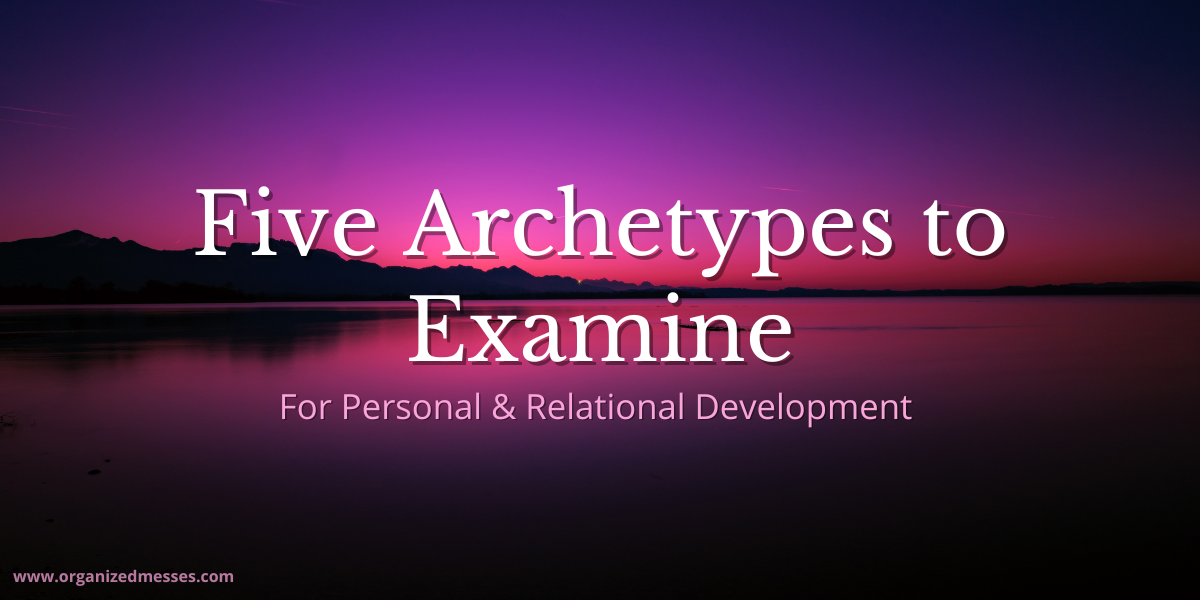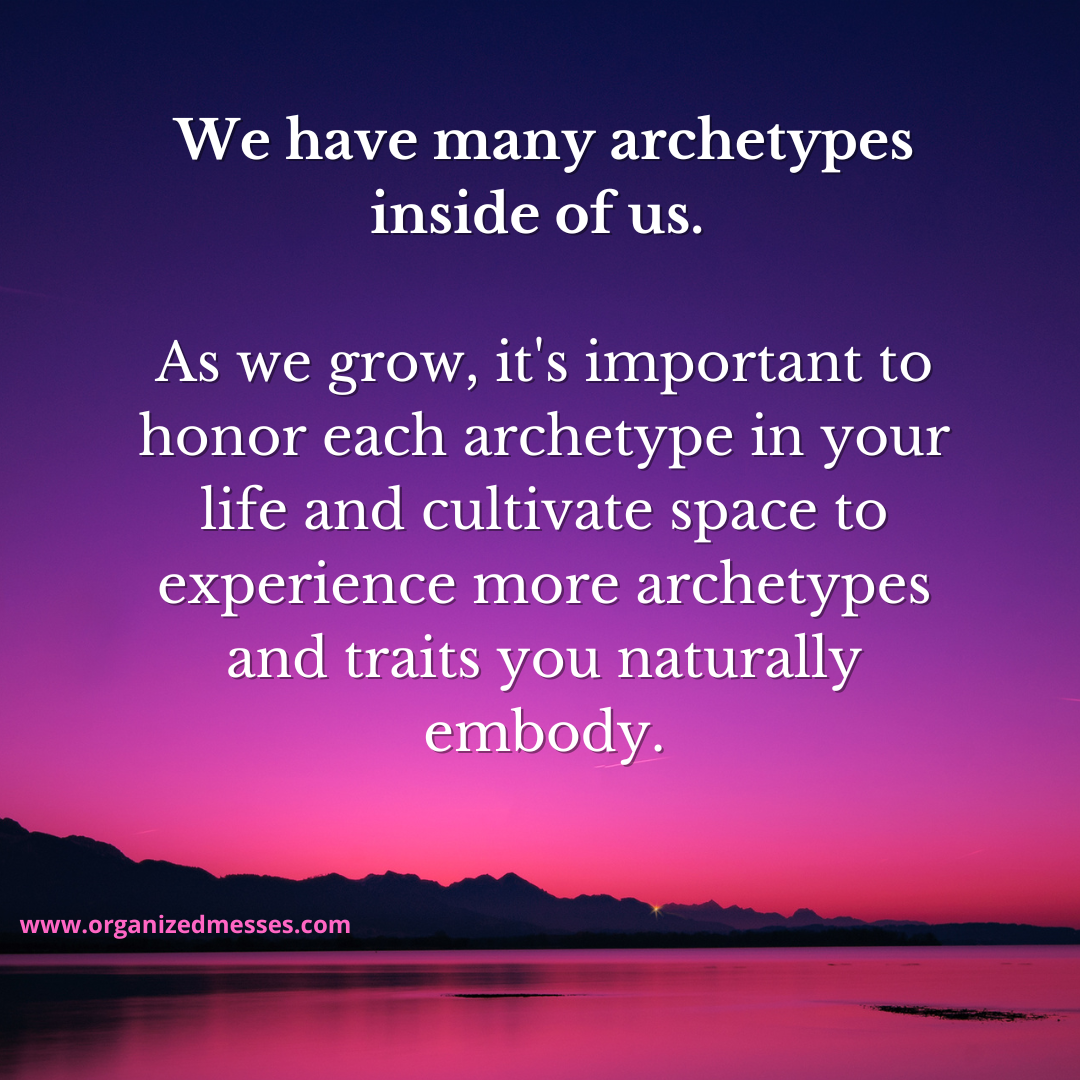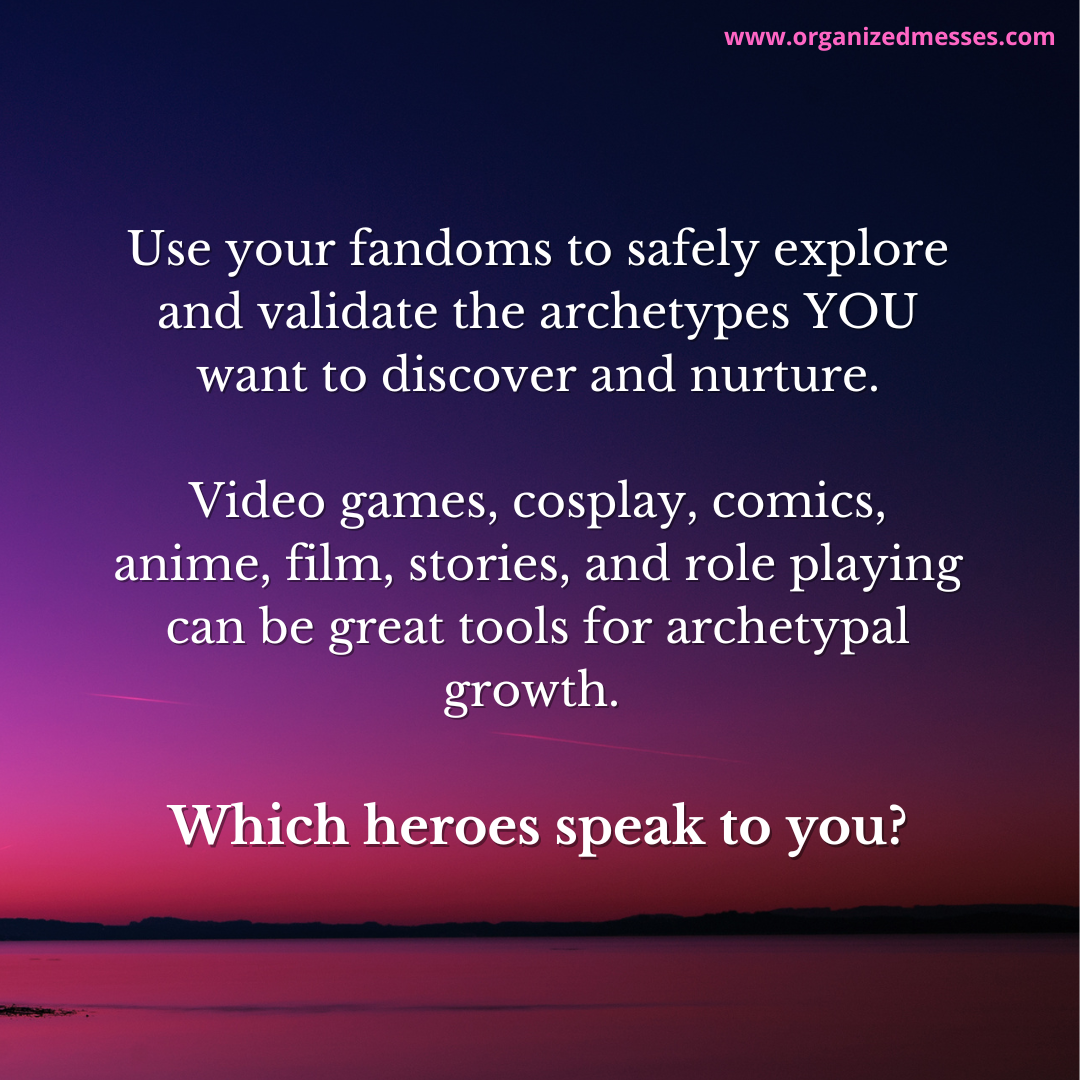This is written through the lens of gaming, play, and archetypes, specifically for the sensitive and divergent thinker. For those who do not have a sensitive, outcast, or divergent primary archetype, please feel free to substitute the archetypes and traits as appropriate. This is a way of seeing your archetypes and using them to grow in your unique ways.
Which Archetypes and Roles are you Using?
Personality psychology can be a powerful lens and tool for learning about your gifts, traits, and individual paths of growth. For those of us figuring out who we are, what we are meant to do with this lifetime, it can be overwhelming and confusing because we internalized the archetypes and roles other people gave us.
What does it mean to internalize the roles other people gave us? When we are children and vulnerable, it can be common to accept what people say about us without question. In family systems, there are complex dynamics where we learn to adapt to survive. This adaptation to survive sometimes means we become something that limits our possibility of self.
For instance, in family situations where our sensitivity was seen as a nuisance or weak, we may believe that’s all we are—SENSITIVE and nothing else. We may use this identity as a crutch, because we’ve never seen the strength of sensitivity honored. When we are in an environment where sensitivity isn’t given space to exist safely, we may indirectly believe there is something wrong with us. We may start to think and believe sensitivity is bad, and that we are bad, too.
We may internalize certain messages that accompany the roles or archetypes people told us we were, or the roles and archetypes we used to survive in situations we had little control over.
Some of the Early Archetypal Messages:
The (Wounded) Healer
My needs are not important. In order to create safety and survive in this environment, I have to learn to (or intuitively) read the needs of others, especially ones in positions of power and control. My identity revolves around being able to help others. If I do not help others successfully, there is something wrong with me.
My role is to save people and see what they need to heal and grow. I know what they need and can be a catalyst for change. I can see my pain in the struggles of others and can come from a genuine place of empathy.
As a child or vulnerable person, it served me well to appease people with authority to keep myself safe or out of trouble.
I have antennae for “wounded” people where I can help whoever needs it. Sometimes it feels overwhelming having this need to help others, but it also feels good to help people in so much pain. My personal feelings for painful experiences intertwine with the lives of others and I get overly invested and irritated if I can’t help people “fast enough.”
The Black Sheep/Outcast/Alien
No one understands me. I struggle to find a place to belong, even in communities that have similar types of people and interests. I feel like I will never belong.
I’ve been blamed for the collective struggles of groups and relationships when all I want to do is speak the truth and live authentically.
I feel special for being different, yet yearn to be part of something intimate and accepting. I may perpetuate this specialness by intentionally acting out in extraordinary ways to get attention. Or I may genuinely express myself in outrageous ways as self-expression.
Due to a history of rejection and feeling misunderstood, I may find it difficult to believe someone wants to know me. To avoid rejection, I may push people away or become isolated from human connections.
The Sick One
I always feel weak and may get physically ill often (without physical reason).
People remind me and focus on telling me I am “always sick.”
I believe my role in being the sick one in the family and didn’t think I could feel better. I accepted this pain, fatigue, and weakness as an unchanging part of life. As a result, it became chronic (again, with no medical support).
Being sick allowed others to care for me and it felt good to be the one being cared for. Or it was overbearing and suffocating having people hyperfocus on my health and wellness. I may seek relationships where I continue to be seen as a sick person outside of my other traits and strengths.
The Victim
I am powerless against what happens in life. I am weak and voiceless.
People (or entities) continue to take advantage of and manipulate me.
I am unable to fight for myself. I wish and hope for a rescuer to save me.
I may not know what healthy, respectful relationships look like and unconsciously gravitate towards people who are abusive or unhealthy. Because all I know is being hurt and a society that harms vulnerable people, I am uncertain and confused about what healthy relationships can look like.
Because I know what deep pain from being hurt and manipulated feels like, I can offer compassion and gentleness to others struggling. I can also many times fight and speak for others who are in similar situations, but not myself.
The One With Potential (Perfectionist)
I grew up being insightful talking about things adults and peers did not. I was constantly told of my potential and intellectual gifts.
Because I was highly creative, curious, and intelligent, I was left without tools and scaffolds to grow. People assumed I would just know what to do in life. I was just a kid but was seen as a “small adult” or “old soul”.
Because I was left alone to figure it out, I feel like an imposter. I also think I need to prove my intellectual capacity without any help. I’ve paired asking for help with being inferior and renouncing my intelligence.
I am frozen with the extremes of analysis and overdoing. I conceptually understand nothing can be perfect, but stop myself from participating in life because the fear of failing is too strong. I either over-research and prepare things that never lead to creation, or I constantly edit my work and projects because “it’s never good enough.”
In relationships, I may never feel like I am good enough a partner or friend. I may sabotage good things thinking I am not deserving of love because I am not perfect.
When You Have One or Many of These Archetypes
Being honest with yourself is a place to start. When you’re highly sensitive or neurodivergent, you can get the message that your thinking or feeling is incorrect compared to the dominant narrative. This is untrue, of course. We all have subjective, personal experiences of what life is and what our inner stories are.
Systemically and politically, too, there are real complex reasons that shape how marginalized people are treated. There are nuances to disability and invisible conditions that make subjective experiences difficult to prove to those who never needed to see through the lens of marginalization and systemic inequality.
These inner experiences are valid and important. When we try to cope with one role, archetype, or persona for survival reasons, we sometimes forget we can be more. We may think we are unsafe to be more (in the past it was unsafe to do so), or we’ve forgotten what other parts of us existed. The wonderful thing about archetypes is the possibility of becoming so much more~ There are possible roles we haven’t tried before because unique reasons. And now it can be time to slowly try on different roles without expectation.
That’s the neat thing about personal empowerment and learning about yourself with loving compassion. It’s a journey, meaning there is no one right or wrong way to do this. When you are ready, the journey is there. There will be challenges and wonderful successes. There will be hardship, and there will be times when you see how much you’ve changed since you started.
If you identify strongly with any of these archetypes, being kind to yourself and accepting of all the ways the archetype shows up in your life is a great first step. How does a person react to this understanding that a role has affected their life both positively and negatively? Again, with patience, compassion, and acceptance.
Accepting that a role existed to survive in the past takes time. This role can also affect you now in the present. Knowing that you have permission to examine the good, bad, and neutral things this role gave you is a process.
Journal about how these archetype traits affect your personal development and your relationships.
What are some ways these roles protected me as a child?
What are some strengths I developed from these roles as an adult?
What are some messages I want to tell my younger self?
This may require a therapist and grief work. You are also welcome to do this work alone, and with trusted people.
How did I participate in staying “stuck” in this role?
Again, this may need support with a therapist, and you are strong enough to do this work alone.
Which messages do I have a difficult time with? Which messages were lies that I believed?
Who benefited from me having this role? Who will also have to adjust to my changes?
Which parts of this role do I no longer need?
Which ROLES or ARCHETYPES no longer serve me now?
What can I say to thank my past and current archetypes for how they protected me?
If you are sensitive or were shamed about an archetype you have
Being seen as your whole self can help reduce shame. This can come from finding communities in the fandoms you love.
Learning who to share vulnerability and sensitivity with will also take practice.
Think about green relationship flags. Before anyone is allowed to see your sensitivity, who supports you without harsh criticism? Who listens empathically without telling you how to live your life? Who sees your strengths and reminds you of them?
Who sees your strengths and abilities to fight for yourself? Who lets you do your best to try, fail, and come back when you’re ready?
When you have a corrective emotional experience does Shame stop you from believing that things can and have changed for the better?
Ask trusted people to help you see all the things you’ve done to grow and fight for your growth!
Give yourself compassion to see and believe in how far you’ve come. It takes a fighter to be a sensitive person in a harsh world.
Using your fandoms and interests to support personal development
If I could be another archetype to grow in life, which one would it be?
Look at the heroes, fandoms, video games, and stories you love. Which characters are you cheering for? Which story arcs feel the most personal to you? Think about how these stories are similar to yours.
Find the strengths and successes in the stories you gravitate towards. Give yourself permission to be as heroic as these characters.
Where is it safe for me to practice loving my archetypes and trying new ones?
Video games, cosplay, comics, online communities, making art, role-playing, coaching, and therapy are all valid ways to try new roles. They can be a part of you in these worlds, and when you are ready/want to, a part of you to share with others and the outside world.
Draw your archetypes. See which ones speak the most to you, and which are hiding or waiting to have permission to show up.
Make art without any intentions in mind. Focus on a theme or archetype you’d like to channel.
Did these characters receive help from others?
Find your own aides, mentors, and special people.
What are some of the mantras or affirmations you love from these fandoms? Write them down!
Did these characters struggle with darkness, and cycles of ups and downs?
You have your own journey of ups and downs, too.




